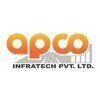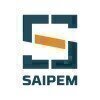Filter interviews by
Tecnimont Process Engineer Trainee Interview Questions and Answers
Tecnimont Process Engineer Trainee Interview Experiences
1 interview found
I applied via Recruitment Consulltant and was interviewed in Aug 2024. There was 1 interview round.
(2 Questions)
- Q1. Npsh value negative
- Q2. How to calculate pump efficiency
- Ans.
Pump efficiency can be calculated by dividing the pump's output power by its input power.
Calculate the pump's output power by multiplying the flow rate, head, and specific gravity of the fluid being pumped.
Calculate the pump's input power by measuring the electrical power input to the pump motor.
Divide the pump's output power by its input power to get the efficiency percentage.
Efficiency (%) = (Output Power / Input Pow
Top trending discussions






Interview questions from similar companies

Interview Questionnaire
3 Questions
- Q1. Project Undertaken
- Q2. About family, subject, hobbies
- Q3. Summer training
Interview Preparation Tips
Experience: The Technical test had 20 questions and the aptitude test had 30 questions with a time duration of 30 minutes each
Total Questions: 50
Round: HR Interview
Experience: Technical plus HR InterviewI believe 30% weight age goes to the projects. I had done a project on heat exchanger design and I had to answer a lot of questions about it.First they asked me about myself and my family background. After that they had questions about my training in IOCL Vadodara. Then they inquired about my favourite subjects to which I answered - RAC, Thermodynamics, Material science. After that, they had some elementary questions like iron carbon phase diagram, stress strain curve, first law, second law of thermodynamics, VCRC system. After this I was a given a situation regarding a pump compressor and was quizzed on the same. I answered all these questions correctly :D
Tips: During the training period you should prepare 2-3 subjects thoroughly so that you don’t have to face any problems during the interview.
General Tips: Do the best you can.Study the subjects and understand the concepts and hopefully you people can clear the interviews.
Skills: Communication Skills, Technical Skills
College Name: NIT JAIPUR

I applied via Referral and was interviewed in Dec 2019. There were 3 interview rounds.
Interview Questionnaire
1 Question
- Q1. Pump Hydraulics, Process description of current working project, Pump characteristic curves, NPSH, What are the documents which you have prepared in your project.
Interview Preparation Tips

Process Engineer Interview Questions & Answers
L&T Energy Hydrocarbonposted on 1 Jun 2021
I appeared for an interview before Jun 2020.
Interview Questionnaire
3 Questions
- Q1. 1) pump related questions 2) p&I'd basic question 3) PSV & pump circuit diagram
- Q2. 4) basic things related to chemical eng..
- Q3. Past experience projects things and little bit detailing.

I appeared for an interview in Aug 2024.
(3 Questions)
- Q1. What are the criteria for line sizing?
- Ans.
Line sizing criteria include flow rate, pressure drop, velocity, material compatibility, and safety factors.
Flow rate: Determine the maximum flow rate the line needs to handle.
Pressure drop: Calculate the pressure drop along the line to ensure proper operation.
Velocity: Select a velocity range to prevent erosion or excessive noise.
Material compatibility: Choose materials that are compatible with the process fluid.
Safet...
- Q2. What are the steps involved in pump sizing calculations?
- Ans.
Pump sizing calculations involve determining the required pump flow rate, head, and power consumption based on system requirements.
Determine the required flow rate for the system
Calculate the total head required to overcome system resistance
Select a pump that can deliver the required flow rate at the calculated head
Calculate the power consumption of the selected pump
Consider factors such as efficiency, NPSH, and safety...
- Q3. What is the definition of Net Positive Suction Head (NPSH)?
- Ans.
NPSH is the measure of the pressure available to prevent cavitation in a pump.
NPSH is the difference between the pressure at the pump suction and the vapor pressure of the liquid being pumped.
It is important to ensure that NPSH is greater than the NPSH required by the pump to avoid cavitation.
Factors affecting NPSH include pump design, fluid properties, and operating conditions.
NPSH can be calculated using specific for
(2 Questions)
- Q1. What is your current salary
- Ans.
I am currently earning a competitive salary based on my experience and qualifications.
My current salary is in line with industry standards for a Process Engineer.
I have received regular salary increases based on performance evaluations.
I am open to discussing salary expectations for this new role.
- Q2. Why do you want to join Toyo?
- Ans.
I want to join Toyo because of its reputation for innovation and commitment to excellence in the field of engineering.
Toyo has a strong reputation for innovation and cutting-edge technology
I am impressed by Toyo's commitment to excellence and continuous improvement
I believe that working at Toyo will provide me with valuable opportunities for professional growth and development

I applied via Walk-in and was interviewed before Oct 2021. There were 2 interview rounds.

(5 Questions)
- Q1. Problem on pump hydraulics, questions related to NPSH
- Q2. Problem on energy balance
- Q3. Safety valve selection criteria
- Ans.
Safety valve selection criteria
The type of fluid or gas being handled
The pressure and temperature of the system
The flow rate and capacity of the valve
The set pressure and blowdown requirements
The material compatibility with the process fluid
The valve's reliability and maintenance requirements
- Q4. Points mentioned in resume
- Q5. Line sizing criteria
- Ans.
Line sizing criteria is the process of selecting the appropriate diameter for a pipeline based on various factors.
Line sizing criteria is based on factors such as flow rate, pressure drop, fluid properties, and velocity limitations.
The selected diameter should ensure that the pressure drop is within acceptable limits and the fluid velocity is not too high or too low.
The type of fluid being transported also plays a role...
Interview Preparation Tips

I applied via Walk-in and was interviewed before Jul 2023. There were 2 interview rounds.
(4 Questions)
- Q1. Pump hydraulics
- Q2. API 650.620 standards
- Q3. Experience in oil and gas
- Ans.
I have 5 years of experience working in the oil and gas industry, specifically in process engineering roles.
Designed and optimized processes for oil and gas production
Implemented safety measures to ensure compliance with industry regulations
Worked on projects involving refining, transportation, and storage of oil and gas
Collaborated with cross-functional teams to improve efficiency and reduce costs
- Q4. PSV sizing calculation
(2 Questions)
- Q1. About pass company achievements
- Q2. Salary negotiation
Interview Preparation Tips

I applied via Campus Placement and was interviewed before Dec 2020. There were 3 interview rounds.
Interview Questionnaire
2 Questions
- Q1. Pump hydraulics Line sizing Control valves
- Q2. PSV Heat exchanger
Interview Preparation Tips

I applied via Company Website and was interviewed in Aug 2023. There was 1 interview round.
(2 Questions)
- Q1. About the work experience
- Q2. Anout the projects

(1 Question)
- Q1. Basic questions, most were of GATE level.
(3 Questions)
- Q1. Line sizing of the fluids.
- Ans.
Line sizing of fluids is crucial for efficient process operation and safety.
Line sizing is determined based on the flow rate, pressure drop, and fluid properties.
Proper line sizing ensures optimal flow velocity to prevent erosion and corrosion.
Consider factors like viscosity, density, and temperature when sizing lines.
Use industry standards and guidelines for accurate line sizing calculations.
Examples: API 14E for oil ...
- Q2. Pumps and its types, cavitation.
- Ans.
Pumps are devices used to move fluids. Types include centrifugal, positive displacement, and submersible. Cavitation is the formation of vapor bubbles in a liquid due to low pressure.
Pumps are used to move fluids in various industrial processes.
Types of pumps include centrifugal, positive displacement, and submersible.
Cavitation occurs when the pressure in a liquid drops below its vapor pressure, leading to the formati...
- Q3. Internship and major project.
(1 Question)
- Q1. Tell me about yourself?
Tecnimont Interview FAQs
Tell us how to improve this page.
Tecnimont Interviews By Designations
- Tecnimont Revit Designer Interview Questions
- Tecnimont Process Engineer Interview Questions
- Tecnimont Graduate Trainee Interview Questions
- Tecnimont Engineer Interview Questions
- Tecnimont Structural Engineer Interview Questions
- Tecnimont Project Engineer Interview Questions
- Tecnimont Assistant Manager Interview Questions
- Tecnimont Design Engineer Interview Questions
- Show more
Interview Questions for Popular Designations
- Process Engineer Interview Questions
- Chemical Process Engineer Interview Questions
- Process Associate Interview Questions
- Junior Process Engineer Interview Questions
- Assistant Manager Process Engineering Interview Questions
- Graduate Apprentice Trainee Interview Questions
- Processing Executive Interview Questions
- Process Control Engineer Interview Questions
- Show more
Tecnimont Process Engineer Trainee Interview Process
based on 1 interview
Interview experience
Interview Questions from Similar Companies
Fast track your campus placements
Tecnimont Process Engineer Trainee Reviews and Ratings
based on 1 review
Rating in categories
|
Deputy Chief Engineer
198
salaries
| ₹13.6 L/yr - ₹36 L/yr |
|
Principal Engineer
128
salaries
| ₹8.5 L/yr - ₹25.2 L/yr |
|
Senior Engineer
87
salaries
| ₹7 L/yr - ₹17.5 L/yr |
|
Additional Chief Engineer
56
salaries
| ₹21.5 L/yr - ₹46 L/yr |
|
Assistant Manager
52
salaries
| ₹10 L/yr - ₹27 L/yr |

AECOM

L&T Energy Hydrocarbon

Apco Infratech

Saipem
- Home >
- Interviews >
- Tecnimont Interview Questions >
- Tecnimont Process Engineer Trainee Interview Questions












